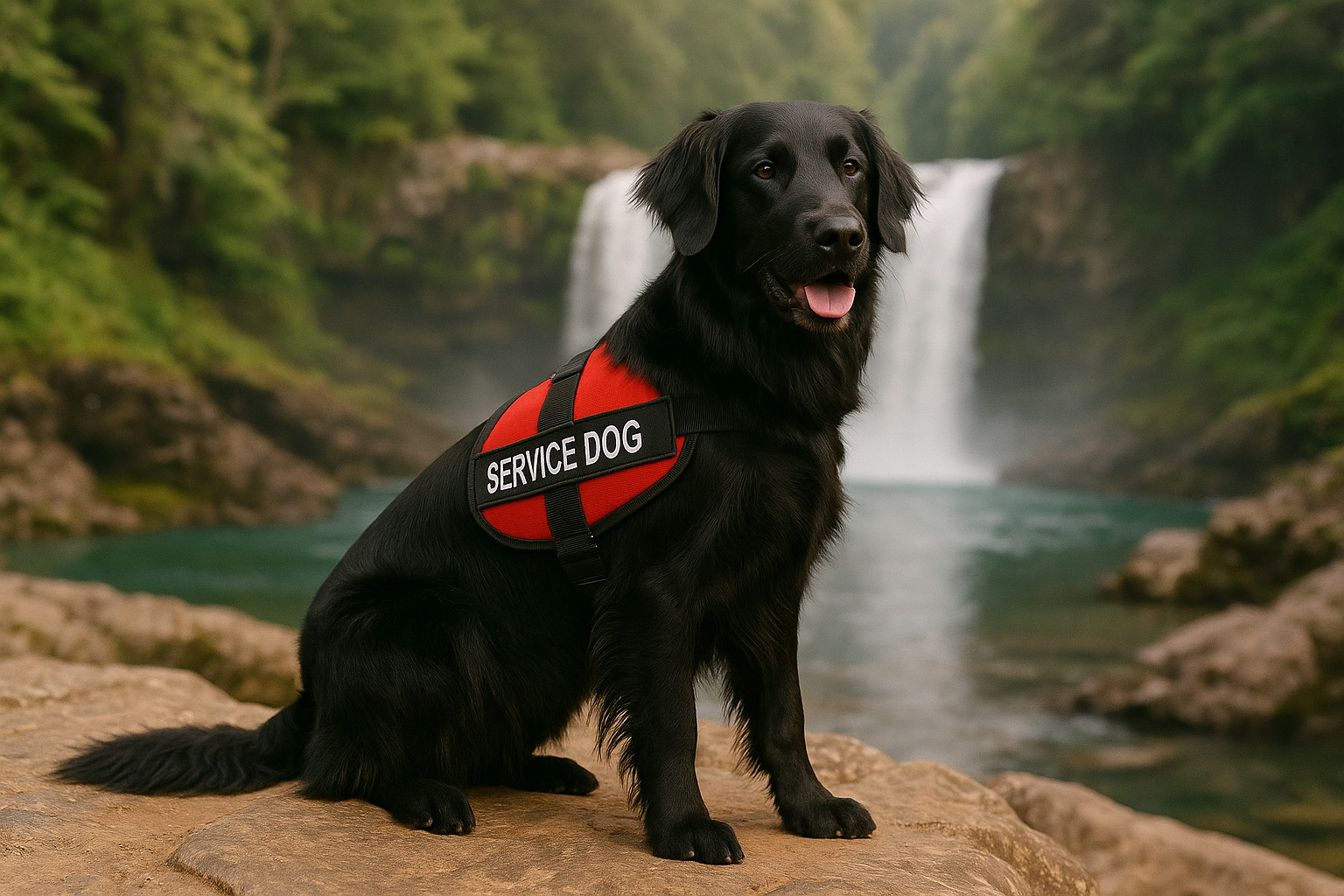Flat-Coated Retriever as a Service Dog

Flat-Coated Retriever Overview
The Flat-Coated Retriever is a lesser-known, yet remarkably skilled member of the retriever family often celebrated for its friendly demeanor and exuberant, lively energy. Renowned for their joyful personality and willingness to work, these dogs can make exceptional service animals given the right circumstances. This article explores the various aspects of the Flat-Coated Retriever that influence their suitability as service dogs, including physical characteristics, temperament, types of service work they excel in, their health considerations, training potential, and a comprehensive summary of their key attributes.
Physical Characteristics
Flat-Coated Retrievers are medium to large-sized dogs known for their distinct, glossy black or liver-colored coats. Their physical attributes play a significant role in their ability to perform specific types of service work.
- Size: These dogs typically stand 22 to 24.5 inches at the shoulder and weigh between 60 to 80 pounds. Their size makes them well-suited for tasks that require strength and endurance, such as mobility assistance.
- Coat: The Flat-Coated Retriever boasts a dense, medium-length, water-resistant coat that provides protection against harsh weather conditions. While this coat can be advantageous in outdoor service roles, it also requires regular upkeep to ensure their comfort and health.
- Energy Level: Possessing boundless energy, Flat-Coats require substantial physical and mental stimulation. Active environments where they can engage in regular exercise are ideal, and their energy can be harnessed effectively in high-intensity service tasks.
The combination of size, coat, and energy level underscores the breed's utility in service situations requiring strength, endurance, and resilience.
Temperament and Attitude
Flat-Coated Retrievers are known for their friendly and outgoing temperament. However, their attitude can influence their effectiveness in various service roles.
- Friendly and Social: These dogs are inherently friendly, known to get along well with humans and other animals. Their social nature is an asset in service scenarios where close interaction with people is required, such as in therapy roles.
- Optimistic Disposition: Often dubbed the "Peter Pan" of retrievers, they retain a puppy-like enthusiasm throughout their lives. This buoyant nature can be a double-edged sword: while it endears them to many, it can sometimes hinder focus during serious work tasks.
- Affectionate and Gentle: Their gentle demeanor makes them ideal candidates for emotional support tasks where providing comfort is essential. They tend to form strong bonds with their handlers, which is crucial in service work.
Despite their strengths, it's important to note that their high energy and sometimes distractible nature require careful management and training to maintain focus in service environments.
Types of Service Work
Flat-Coated Retrievers are versatile and can excel in various service dog roles. Their physical attributes and temperament lend themselves to several specific types of work.
- Mobility Assistance: Their size and strength enable them to provide physical support for individuals with mobility challenges. Retrieving objects, opening doors, and providing stability for those with balance concerns are tasks they can handle adeptly.
- Medical Alert and Assistance: While not as commonly used for medical alert tasks as some breeds, with proper training, they can be adept at tasks like alerting to seizures or detecting changes in glucose levels for individuals with diabetes.
- Emotional Support and Therapy: Their affectionate nature and ability to connect with people make them suited for roles in emotional support and therapy, providing comfort and reducing stress for individuals in need.
In each of these roles, careful selection and tailored training are essential to harness their full potential.
Health Considerations
Like all breeds, Flat-Coated Retrievers have specific health considerations that might impact their service work.
- Hip Dysplasia: Common in large breeds, hip dysplasia can affect their ability to perform physical support tasks. Regular veterinary check-ups and appropriate exercise can help mitigate this issue.
- Cancer: Unfortunately, Flat-Coated Retrievers are predisposed to certain cancers which can impact their lifespan and functionality as service animals. Regular health screenings and a healthy lifestyle are imperative for early detection and management.
- Ear Infections: Their floppy ears make them susceptible to ear infections, which, if left untreated, can lead to discomfort and distraction during service tasks. Regular ear cleaning is necessary to prevent such issues.
Being proactive about their health ensures they maintain the physical capability necessary for service work.
Training and Suitability
Training a Flat-Coated Retriever for service work requires consideration of their unique temperament and intelligence.
- Trainability: They are intelligent and eager to please, making them relatively easy to train for various tasks. However, their exuberance can occasionally challenge traditional training methods.
- Focus and Distraction: Their playful demeanor means they may become easily distracted if not trained from a young age to focus during task performance. Consistent training and positive reinforcement are key to maintaining their attention.
- Adaptability: These dogs adapt well to different environments, which is beneficial in dynamic service scenarios where flexibility is important.
Selecting Flat-Coated Retrievers as service animals requires a commitment to consistent training and patience to hone their strengths effectively.
Summary of Flat-Coated Retriever
To summarize, the Flat-Coated Retriever possesses many attributes that can be advantageous in service work. Here's a breakdown of their strengths, weaknesses, and ideal service roles:
- Strengths:
- Friendly and Social: Excellent in environments where interaction with people is frequent.
- Energetic and Playful: Suited for active roles requiring endurance.
- Adaptable: Comfortable in varied settings and conditions.
- Weaknesses:
- Potential for Distraction: Requires focused training to maintain attention.
- Health Concerns: Predisposition to certain health issues necessitating regular check-ups.
- Ideal Service Roles:
- Mobility Assistance
- Emotional Support and Therapy
In conclusion, the Flat-Coated Retriever is a versatile, affectionate breed that, with proper training and health maintenance, can serve effectively in various supportive roles. While they require a bit more management in terms of focus and health, the rewards of their joyful companionship and service capabilities are substantial.











